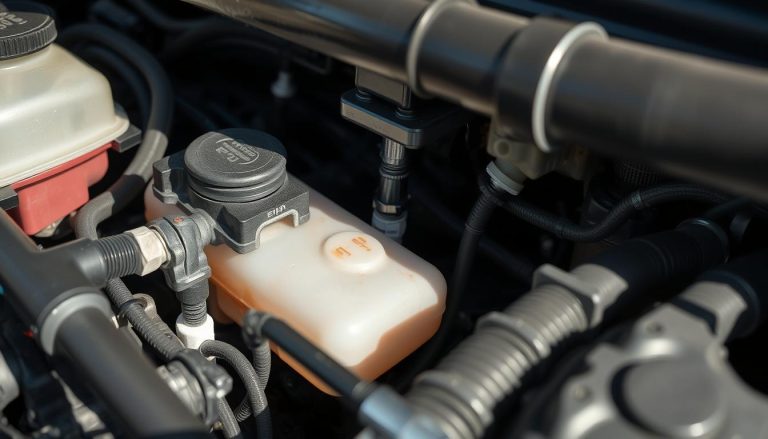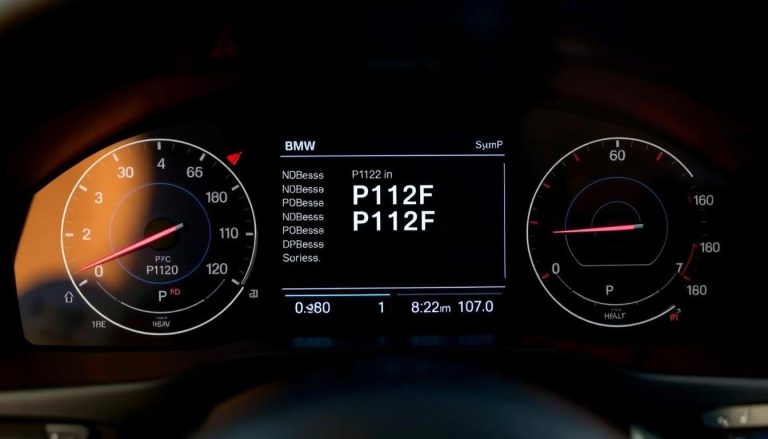If you’re a car owner, chances are you’ve encountered various diagnostic trouble codes (DTCs) at some point. One such code that can raise eyebrows is the P0259 code. This cryptic combination of letters and numbers might seem daunting, but understanding it could save you from potential headaches down the road.
The P0259 code points to issues with your injection pump’s fuel metering control system—an essential component for optimal engine performance. But what does this really mean for your vehicle? Let’s dive into the details about this code, including its symptoms, causes, and how to address it effectively.
What does the P0259 code mean?
The P0259 code indicates a problem with the injection pump fuel metering control. Specifically, it refers to an abnormal signal from the system responsible for managing fuel delivery in diesel engines.
This code is triggered when the Engine Control Module (ECM) detects that the fuel metering control B circuit is operating outside of its normal parameters. It typically involves parts like the camshaft, rotor, or injectors.
When this happens, it can lead to inefficient engine performance and increased emissions. The ECM relies on accurate readings from various sensors to optimize fuel flow and combustion efficiency. Any disruption in this process may compromise your vehicle’s overall functionality.
Understanding what P0259 means can help you take proactive measures before more severe issues arise within your engine’s fueling system.
What parts can be affected by P0259 code ?
When the P0259 code is triggered, several components within the fuel system may be impacted. The injection pump is often at the forefront of issues. This component plays a crucial role in delivering fuel to the engine.
Next up are the fuel injectors themselves. They can become clogged or fail altogether due to inconsistent metering caused by the injection pump’s malfunction.
Another part that might experience problems is the camshaft or rotor within the injector pump assembly. These elements help regulate flow and pressure, making them vital for optimal performance.
Wiring and connectors associated with these parts can also deteriorate over time, leading to faulty signals and further complications in fuel delivery.
Each affected part contributes significantly to your vehicle’s overall functionality and efficiency. Addressing these aspects promptly ensures better performance and longevity of your engine system.
What are the possible causes of a P0259 code?
The P0259 code arises from various potential issues within the fuel metering system. One common cause is a malfunctioning injection pump. If this component fails, it can disrupt fuel delivery and trigger this diagnostic trouble code.
Another possibility involves wiring problems. Damaged or corroded wires can lead to incorrect readings, affecting overall performance.
Faulty sensors also contribute to this issue. A defective camshaft or rotor sensor may send inaccurate signals to the engine control unit (ECU), resulting in the P0259 code being activated.
Additionally, clogged fuel filters can restrict flow and pressure, leading to complications in fuel metering. Low-quality diesel fuel may affect injectors’ functionality and adversely impact performance as well. Each of these factors plays a significant role in triggering a P0259 code.
What are the common symptoms of a P0259 code?
When the P0259 code triggers, your vehicle may show several noticeable symptoms. One of the first signs is a decrease in engine performance. You might experience hesitation during acceleration or an overall lack of power.
Another common symptom includes rough idling. Your engine may shake or stumble while at rest, indicating that fuel delivery isn’t optimal.
In some cases, you might notice increased exhaust emissions. This could lead to failing an emissions test if not addressed promptly.
Additionally, check engine lights are almost always present with this code. Ignoring it can lead to further complications down the line.
Unusual noises from the injection pump area can occur. These sounds often signal that something’s amiss within the fuel metering system and should be investigated immediately for safety reasons.
What are the diagnostic steps for a P0259 code?
When diagnosing a P0259 code, start by connecting an OBD-II scanner to your vehicle. This tool will read the trouble codes and provide insights into the engine’s performance.
Check for any additional codes that might accompany P0259. Multiple codes can give a clearer picture of underlying issues.
Next, visually inspect the fuel injection system components for obvious signs of wear or damage. Look at wiring harnesses and connectors associated with the fuel metering control; loose or corroded connections could be culprits.
Using a multimeter, test the resistance of sensors related to fuel metering. Compare readings against manufacturer specifications.
Conduct road tests while monitoring real-time data from your scanner. This helps observe how changes in driving conditions affect performance metrics connected to the P0259 code.
How serious Is the P0259 Code? Can I continue driving with the P0259 code?
The P0259 code indicates a problem with the injection pump fuel metering control, specifically related to Cam, Rotor, or Injector. This can lead to serious performance issues in your vehicle.
Driving with this code active isn’t advisable. The engine may experience reduced power and efficiency. Fuel delivery could become inconsistent, leading to rough idling or stalling.
In some cases, ignoring the P0259 code might trigger further damage. Components like injectors or the pump itself could fail entirely if left unaddressed. It’s best to take action sooner rather than later.
If you notice this code on your dashboard, it’s wise to get it diagnosed quickly. Continued driving could worsen existing issues and increase repair costs down the line. Prioritizing maintenance is always a good strategy for vehicle longevity.
What are the repair solutions for a P0259 – Injection Pump Fuel Metering Control B High (Cam/Rotor/Injector) ?
Repairing the P0259 code often requires a methodical approach focused on the fuel system. Start by inspecting and testing the injection pump, as it plays a vital role in fuel delivery.
If issues are present, consider replacing faulty components like the cam or rotor within the pump assembly. These parts directly impact metering control and performance.
Next, examine electrical connections to ensure they’re secure and free from corrosion. Damaged wiring can lead to incorrect signals being sent to the engine control module (ECM).
In some cases, reprogramming or resetting the ECM may be necessary after repairs are made. This ensures that all parameters align correctly with your vehicle’s requirements.
Regular maintenance is crucial. Keeping up with routine inspections can help prevent future occurrences of this code and enhance overall vehicle reliability.
What other codes may be related to P0259?
When dealing with the P0259 code, it’s essential to be aware of other related codes that may surface. These additional codes can often provide deeper insight into underlying issues.
For instance, you might encounter P0200 through P0299 series codes. They typically relate to fuel injection and cylinder misfires, which are crucial for diagnosing fuel delivery problems.
Codes like P0191 and P0193 pertain to fuel rail pressure sensor malfunctions. A faulty sensor could trigger both these readings alongside the P0259 code.
Additionally, keep an eye out for any transmission-related codes such as P0700, which hints at broader electronic or communication faults within the vehicle’s systems.
Understanding these connections helps in pinpointing the root cause more effectively. Addressing multiple error codes simultaneously can streamline your repair process significantly.
How much does it cost to diagnose and repair a P0259 code?
The cost to diagnose a P0259 code can vary significantly based on location and the specific shop. Generally, you might expect to pay between $100 and $200 for diagnostics. This typically includes a thorough inspection of your vehicle’s fuel system.
Repair costs can escalate depending on the underlying issue causing the code. If it involves replacing components like an injection pump or injectors, expenses may rise to several hundred or even thousands of dollars. Parts alone could run anywhere from $300 to over $1,500.
Labor is another factor that contributes to overall costs. Most mechanics charge around $75 to $150 per hour for labor-intensive repairs related to this code.
Always seek multiple quotes before committing, as prices can differ significantly among repair shops in your area.
How long does it take to diagnose and repair code P0259?
The time it takes to diagnose and repair the P0259 code can vary significantly. Typically, a skilled mechanic may need anywhere from one to three hours for diagnosis alone. This includes checking various components related to fuel metering control.
Repairing the issue could take additional time, depending on what is found during diagnostics. If it’s a simple fix like replacing a sensor or wiring, it might take just an hour more. However, if there are deeper issues with the injection pump or other critical parts, expect repairs to extend over several days.
Keep in mind that access to specific replacement parts can also influence timing. Some vehicles may require ordering parts that aren’t readily available locally. Always communicate with your mechanic about expected timelines so you stay informed throughout the process.
Is the P0259 code specific to certain car makes or models?
The P0259 code is not limited to specific car makes or models. It can appear in a variety of vehicles, particularly those with diesel engines.
Manufacturers like Ford, Chevrolet, and Dodge commonly report this code. However, its occurrence isn’t restricted to these brands alone. Many other automakers may also experience similar issues related to fuel metering.
While the symptoms and diagnostic approaches might be consistent across different cars, the underlying hardware can vary significantly. This means that while you might find the P0259 code in many vehicles, each case could have unique nuances tied to their design and engineering.
It’s essential for vehicle owners experiencing this issue to consult their service manual or a professional mechanic familiar with their specific model for tailored advice and solutions.
How can I avoid a P0259 code?
To avoid a P0259 code, regular maintenance is key. Ensure your vehicle undergoes timely oil changes and fuel filter replacements. Clean fuel systems promote optimal performance.
Pay attention to the quality of fuel you use. Contaminated or low-quality diesel can lead to injector issues over time. Stick with reputable brands that meet manufacturer specifications.
Inspect electrical connections associated with the injection pump regularly. Corroded or loose wires can disrupt signals and contribute to faults like the P0259 code.
Additionally, stay vigilant for any unusual sounds from the engine or changes in performance. Early detection of potential problems can save you from more significant repairs down the line.
Using diagnostic tools occasionally helps monitor your vehicle’s health proactively, catching issues before they escalate into serious trouble.
What happens if you ignore a P0259 code?
Ignoring a P0259 code can lead to several complications. When the fuel metering control is out of balance, it directly affects your vehicle’s performance and efficiency. You may notice decreased power, poor acceleration, or even stalling.
Over time, untreated issues related to this code might degrade other engine components. This could lead to costly repairs down the line that could have been avoided with timely attention. Additionally, driving with a persistent P0259 code can increase emissions due to improper combustion.
Beyond performance concerns, ignoring this warning signal from your vehicle’s system increases the risk of complete breakdowns while on the road. Ensuring proper diagnosis and resolution not only preserves your car’s health but also promotes safer driving conditions for you and others on the road.
It’s best not to overlook any check engine light codes like P0259; addressing them promptly will save you both time and money in the long run.


